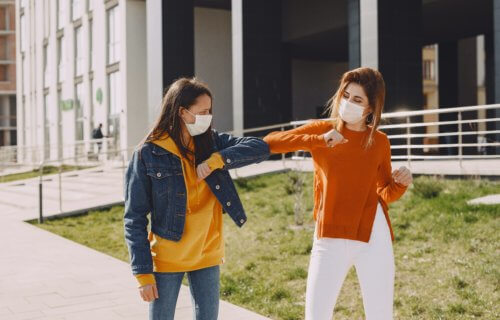COLLEGE STATION, Texas — Travel from the city to the countryside nowadays and you just might notice fewer people wearing masks. A new national survey finds urban Americans are more likely than their rural counterparts to follow pandemic public health guidelines. This includes wearing a mask in public, sanitizing homes and work areas, working from home, avoiding restaurants or bars, and practicing social distancing.
Researchers from Texas A&M University School of Public Health surveyed a total of 5,009 U.S. adults, with each person being carefully selected to craft a nationally representative population sample. The survey asked respondents about how closely they follow COVID health guidelines, their general political views, and what they perceive their risk of getting COVID-19 is.
Researchers also looked at each person’s personal trust in doctors and whether or not they went for a COVID-19 test. The team collected data on the group’s age, incomes, religious views, gender, race, and education history as well. Zip codes helped to determine whether Americans were living in an urban or rural area.
Country and city living look much different during COVID-19
Across the board, rural Americans reported following COVID safety protocols less often. Specifically, rural residents are especially less likely to wear a mask in public or work remotely. To a lesser degree, rural Americans are also less likely to avoid restaurants, change their travel plans, and routinely disinfect their homes and work areas.
To be fair, both urban and rural respondents were about equal when it comes to hand washing, social distancing, and cancelling planned social events due to the virus.
Regardless of where they live, Americans who expressed higher levels of general concern over the pandemic were more likely to follow health guidelines. This was also the case for older respondents, women, and those with a higher income or level of education. Meanwhile, Americans with conservative political beliefs were less likely to follow health guidelines
Considering the fact that health services and facilities are usually more robust in urban areas, study authors say rural residents are putting themselves at risk needlessly. They recommend developing new ways to promote and encourage COVID-19 prevention behaviors in rural regions.
“Something that targeted messaging might help to achieve,” says study co-author Timothy Callaghan, PhD in a university release. “Public health efforts that consider factors like trust of medical experts and political ideology when reaching out to different groups could be key.”
The study is published in the Journal of Rural Health.
